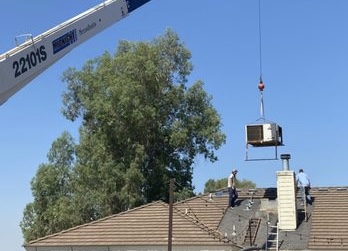Residential HVAC Services
Home comfort isn’t a luxury—it’s a necessity. In Fresno’s intense summers and chilly winter mornings, your HVAC system works hard to keep your home livable. At Steve Patrick Air, we deliver reliable Residential HVAC Services tailored to the needs of Central Valley homeowners.
With over 44 years of experience, we provide fast, expert solutions that include installations, repairs, upgrades, and routine maintenance—ensuring your system runs efficiently year-round.
HVAC services
Why Choose Steve Patrick Air for Residential HVAC Services?
Whether you’re replacing an outdated system, fixing a sudden breakdown, or preparing for the season ahead, we handle every home with the same level of care and precision.

Residential HVAC Maintenance
Routine maintenance keeps your system running smoothly and extends its life. We offer seasonal tune-ups that include filter changes, system inspections, coil cleaning, refrigerant checks, and more—so you avoid unexpected breakdowns during peak heat or cold.
our Residential HVAC services
Get the Right Services
Need a hand with your Air Conditioning or Heating? Look no further! Firstly, our team can help you tackle whatever installation, repair, or maintenance project is on your plate. We also take pride in quick and effective solutions that will exceed expectations every time!
Residential HVAC Service Packages
Prices For Our Services
Why Choose Steve Patrick Air?
Let our skilled technicians help you reclaim the comfort of your home with their experienced maintenance and A/C repair services. Get in touch to restore your system today!





